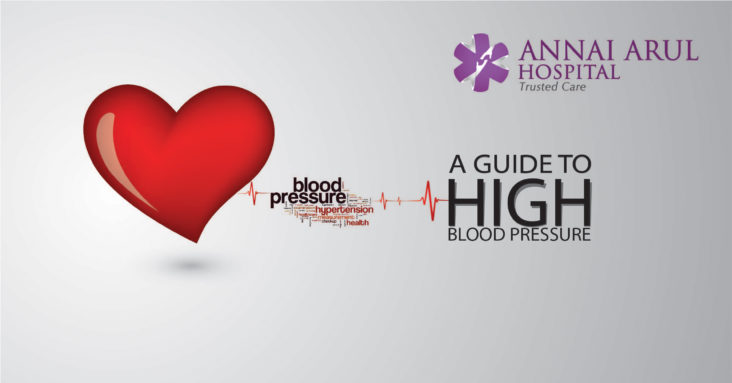High blood pressure is also known as hypertension and it is today a fairly common occurrence. The older you become, you are more prone to get hypertension. Blood pressure is actually the force of the blood pressing against the walls of the arteries. There is a normal pressure required to pump blood from the heart but when this pressure exceeds the level it can be fatal.
When the pressure is too high the heart works harder, the arteries may get damaged and you can feel certain symptom that makes you unwell and even cause heart disease, stroke or kidney disease.
WHAT ARE THE SYMPTOMS OF HYPERTENSION?
High blood pressure is a sneaky silent killer and does not show much outward symptoms. Which means a person could have it for years and may not know about it. It silently damages the vital organs including heart, lungs, blood vessels, brain and kidney it not found and treated on time.
WHAT IS THE NORMAL RANGE FOR BP?
The normal blood pressure range falls below a reading of 130/80 on the blood pressure machine. Higher results over time can be the sign of hypertension. The top number shows the systolic value and the pressure when the heart beats. The lower number or diastolic value is the measure of pressure at the rest between heartbeats; here the heart is again filling with blood.
THE WARNING SIGN
An elevated blood pressure is a measure which is above the normal level or 3 consecutive reading. Certain lifestyle changes in consultation with the doctor can help get back to normal health.
THE FATAL ZONE
When the systolic pressure is between 130 to 139 and the diastolic pressure is between 80 to 89 then you are in the Stage 1 high blood pressure zone. If the reading is 140 or higher systolic and 90 or greater diastolic then you have Stage 2 hypertension. Similarly if the blood pressure shows a reading of 180 systolic and 120 diastolic then you are in a hypertensive crisis. This can lead to stroke, heart attack, acute kidney damage etc. If you observe such a range take some rest and check again. The symptoms may include severe headache, anxiety and at times nose bleeding. Ultimately you will feel breathless and pass out.
WHO IS AT RISK?
Men upto the age of 45 are more likely to get blood pressure than women. But as you grow older it almost becomes similar for both men and woman and both are at risk. By the age of 65 more women may have hypertension than men. A family history of hypertension means you are more likely to get it and it is also widespread among those with diabetes. Sometimes a health problem like kidney disease can give rise to hypertension.
HOW CAN YOU PREVENT HT?
- There are many lifestyle changes that can help prevent the onset of hypertension and if you have high blood pressure adapting these measures can save you.
- Sodium or the salt in our food helps retain water and put more pressure on the heart and cause hypertension, so say less to salt.
- Stress is another factor which should be dealt with so say no to alcohol, smoking and poor diet to beat stress and stay healthy.
- Being overweight or obese can put a lot of strain on the heart and cause hypertension. So start exercising.
- Medicines should be taken in consultation with doctors otherwise they can lead to hypertension.
- The DASH Diet – Dietary Approach to Stop Hypertension – suggests taking more of fruits, vegetables, whole grain foods, low fat dairy and meat. Stay away from red meat, saturated fats and sweets.
- Get some good exercise daily to bring down the body weight and prevent hypertension.


